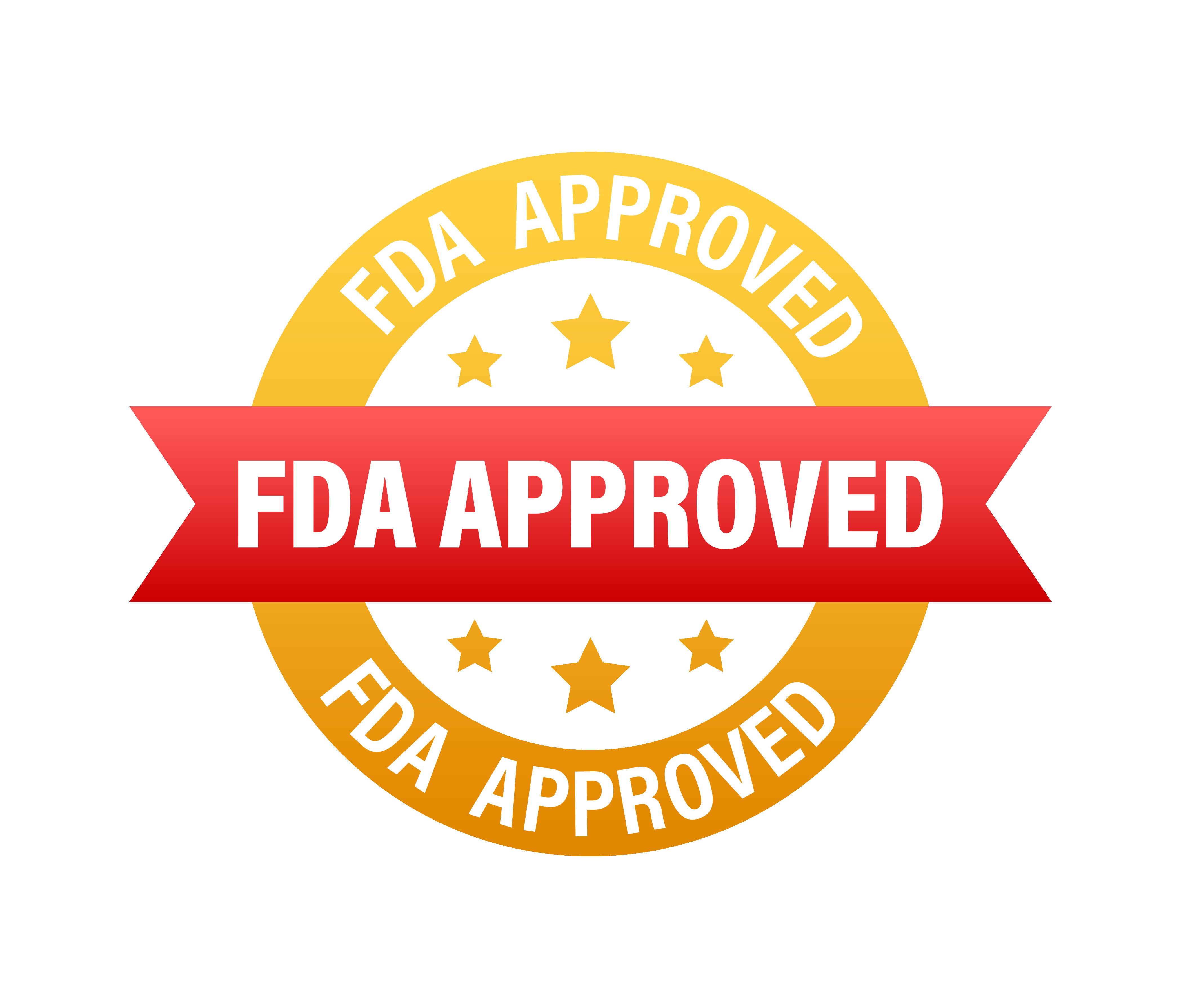News
Article
FDA Approves Idorsia's Tryvio for Resistant Hypertension
Author(s):
Once-daily aprocitentan (Tryvio) is the first and only FDA-approved endothelin receptor antagonist for treating high blood pressure that remains uncontrolled despite other antihypertensive treatments.
FDA Approved | Image credit: chrisdorney – stock.adobe.com

Aprocitentan (Tryvio) 12.5 mg was approved by the FDA today to treat hypertension in adults when combined with other antihypertensive medications, targeting those whose blood pressure (BP) remains uncontrolled with existing treatments.
This is the first oral antihypertensive employing a novel therapeutic pathway to be approved in nearly 40 years. Idorsia Pharmaceuticals plans for widespread availability in the US by the second half of 2024 to benefit the millions of patients who cannot control their hypertension with other drugs. The approved dosage of aprocitentan is 12.5 mg orally once daily, with or without food.
The endothelin receptor antagonist targets endothelin-1 (ET-1) receptors ETA and ETB, thereby inhibiting their binding with ET-1. Endothelin's effects align closely with hypertension pathophysiology, making it a significant contributor to elevated BP and a major driver of aldosterone production. According to the Idorsia news release, this approval fills a crucial therapeutic gap, as existing antihypertensive therapies primarily target mechanisms such as salt and water regulation, renin-angiotensin-aldosterone (RAAS) system antagonism, and vasodilation, leaving the endothelin pathway unaddressed.
The efficacy and safety of aprocitentan were demonstrated through comprehensive clinical trials, including a phase 2 study evaluating its use as monotherapy and the pivotal phase 3 PRECISION study, assessing its effectiveness as add-on therapy in patients with confirmed resistant hypertension. Notably, in PRECISION, aprocitentan showcased superior efficacy over placebo in reducing BP, with a sustained effect observed over an extended period. The PRECISION study also demonstrated aprocitentan’s efficacy across various patient subgroups, including those with comorbidities and those on multiple antihypertensive medications.
“Early on, we realized that endothelin was involved in patients with hypertension, especially in those remaining uncontrolled despite other anti-hypertensive drugs,”said Martine Clozel, MD, chief scientific officer of Idorsia. “Since the endothelin pathway was not yet tackled in these patients, we selected aprocitentan, an endothelin receptor antagonist with the ideal properties for use in this condition. We were delighted when we saw the safety and efficacy data with TRYVIO, even on top of multiple antihypertensives, in patients whose hypertension is not adequately controlled. The recognition of its potential with today’s FDA approval is great news for prescribers and patients.”
Michael A. Weber, MD, professor of cardiovascular medicine at State University of New York and investigator in the PRECISION study, noted that health care providers currently encounter challenges in lowering BP to recommended levels in at least 10% of patients with hypertension that they treat. According to him, these difficulties are frequently encountered among patients with elevated risks of adverse cardiovascular events, often compounded by comorbid conditions.
“We have had to wait for over 30 years to see the approval of an oral anti-hypertensive agent that works on a new therapeutic pathway, so TRYVIO provides transformational progress in the field of systemic hypertension,” Weber said.
The PRECISION study included adults with systolic BP (SBP) 140 mmHg or greater who were on at least 3 antihypertensive medications. The trial consisted of a 4-week placebo run-in period followed by 3 parts. In part 1, patients received aprocitentan at either 12.5 mg, 25 mg, or placebo once daily during the initial 4-week treatment period. At week 4, aprocitentan 12.5 mg demonstrated statistical superiority over placebo in reducing sitting SBP (SiSBP), and this effect was consistent for sitting diastolic BP (SiDBP). In part 2, all patients moved on to the single-blind treatment period where they received 25 mg aprocitentan once daily for 32 weeks.
Following this, part 3 consisted of patients being rerandomized to placebo or 25 mg aprocitentan for 12 weeks. Notably, patients re-randomized to the placebo group experienced an increase in mean SiSBP, whereas those re-randomized to the 25 mg dose maintained a statistically superior reduction in SiSBP compared to placebo at Week 40. This consistent treatment effect was also observed for SiDBP, highlighting the enduring efficacy of aprocitentan in sustaining BP reduction over time.
Subgroup analyses revealed consistent BP-lowering effects of aprocitentan across various demographic and clinical characteristics. Adverse reactions, including edema/fluid retention and anemia, were among the most frequently reported during the study's double-blind placebo-controlled treatment period. Additionally, a small percentage of patients experienced hypersensitivity reactions on aprocitentan, necessitating careful monitoring and adherence to contraindications.
While lowering BP with antihypertensive drugs typically reduces the risk of cardiovascular events, it's important to note that controlled trials haven't specifically demonstrated this benefit with aprocitentan. Aprocitentan is not approved for use at a 25 mg dose.
Reference
US FDA approves Idorsia’s once-daily TRYVIO (aprocitentan) – the first and only endothelin receptor antagonist for the treatment of high blood pressure not adequately controlled in combination with other antihypertensives. News release. Idorsia Pharmaceuticals. March 20, 2024. Accessed March 20, 2024. https://www.idorsia.com/media/news/news-archive/media-release-details?id=3195250
Newsletter
Stay ahead of policy, cost, and value—subscribe to AJMC for expert insights at the intersection of clinical care and health economics.





